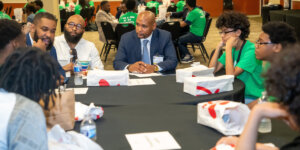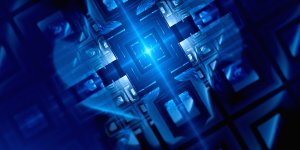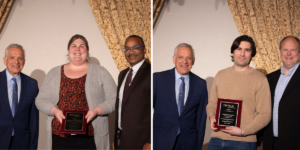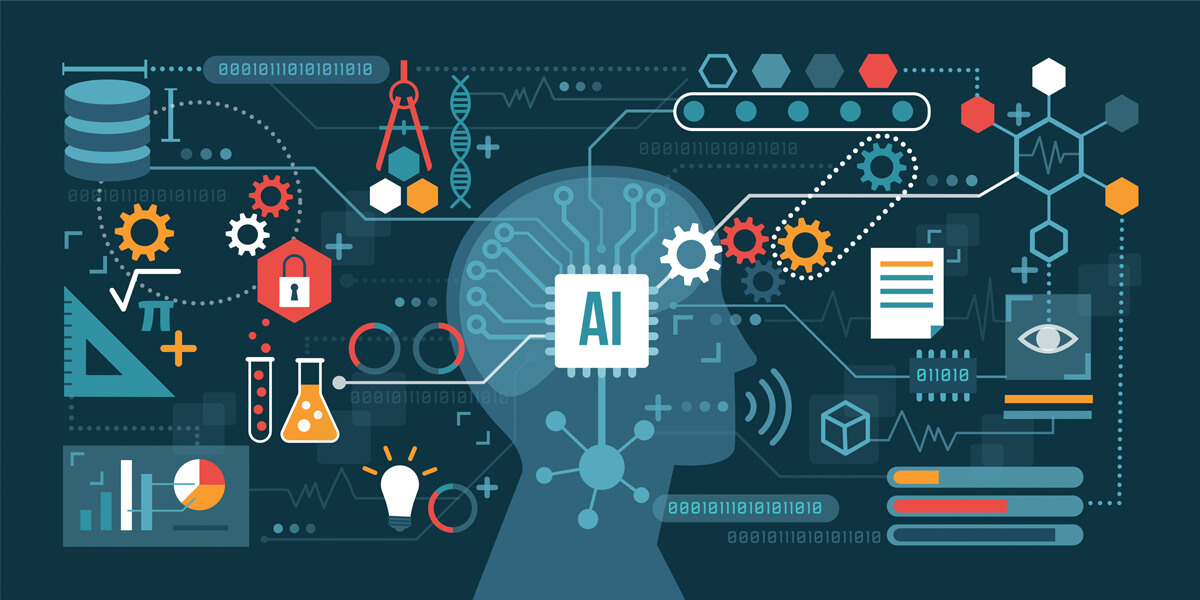
CAIS++ leadership is setting up a new round of ‘AI for social good’ projects for fall 2020 in the domains of healthcare, climate change and social justice. Photo/iStock.
More than 60 students and faculty members recently joined a virtual showcase for the USC Center for AI in Society‘s student branch, CAIS++, where more than 30 members highlighted their semester-long progress and shared what they learned from their research.
The Viterbi-affiliated student club gathers dozens of undergraduates with a shared passion: to advance artificial intelligence technologies for social good. By dividing into smaller teams and working with professors, startups, and local organizations, CAIS++ members work on various AI applications to help solve societal problems.
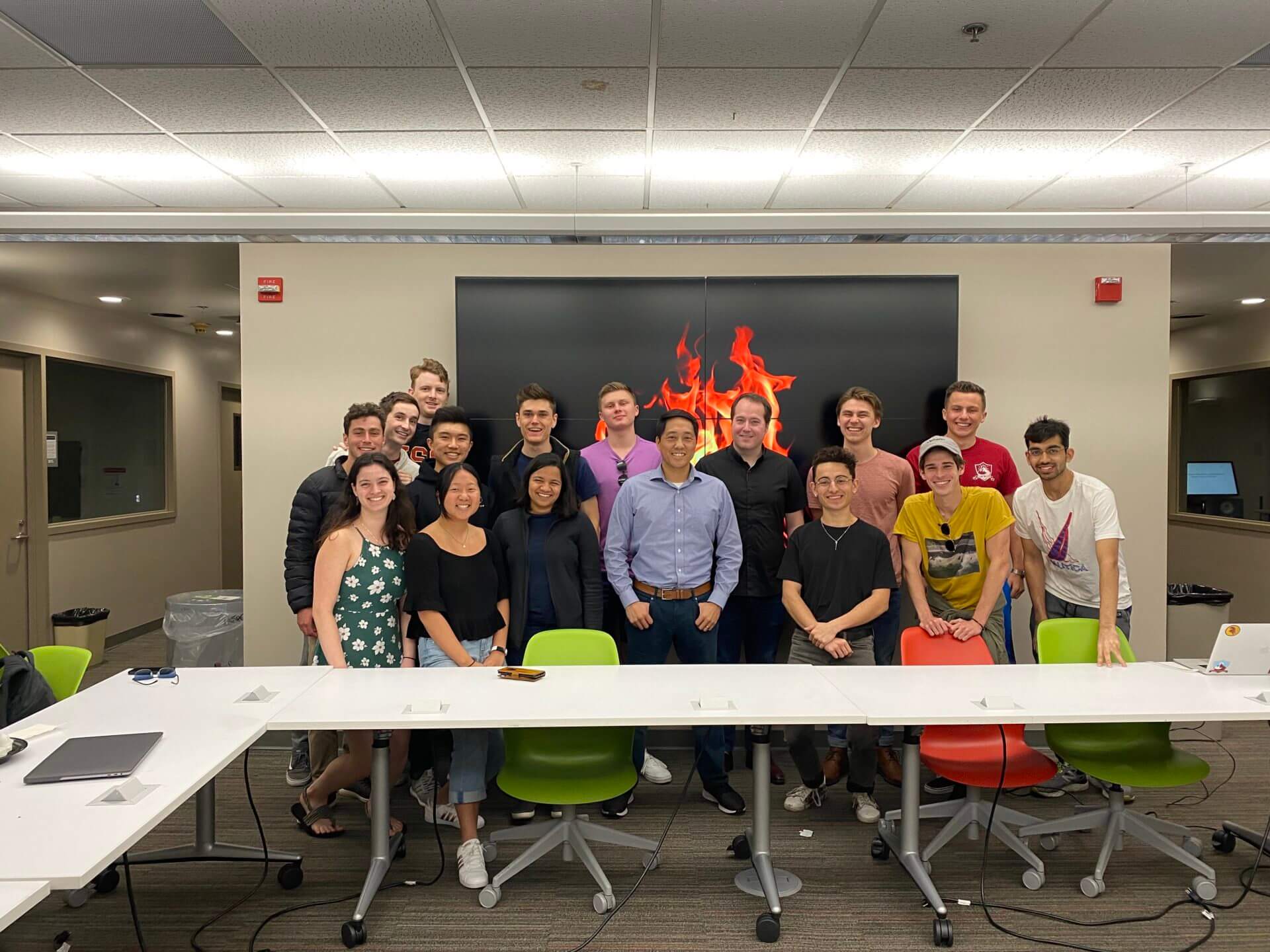
Members of the CAIS++ team with David Jeng, Wintec Industries, and Charles Jolley, co-founder of Ozlo, Inc. Photo/CAIS++.
“We’re the only undergraduate machine learning group in the country that almost entirely focuses on social impact projects,” said Ben Brooks, a computer science and electrical engineering major and CAIS++ president, 2019-2020.
“One thing that we bring to the USC computer science community specifically is a very pointed focus on ethics and understanding the impact of what we build. A lot of software is built with the intention of making people’s lives easier, but doesn’t really pay attention to the consequences.”
This summer, Leena Mathur, CAIS++ president for the 2020-2021 academic year, has been working with the club’s board members to plan projects for fall 2020. Mathur, a triple major in computer science, linguistics and cognitive science, served as a VP of projects last year.
“We have been setting up a new round of ‘AI for social good’ projects in the domains of healthcare, climate change and social justice for fall 2020. Staying engaged and connected with remote members will be challenging, but not impossible, and we’re looking forward to next semester.”
Find out more about the spring 2020 projects presented below (project leads underlined):
Generalized Gene Sequencing Classification
Isaac Gelman, Natalie Abreu, Tomas Angelini, Shannon Brownlee, Laura Cao, Shreya Havaldar, Nico Perez
Working with the USC Smith Computational Genomics Lab, this CAIS++ team built a tool to assist computational biology researchers in analyzing their data. The generalized sequencing classifier, or GSEC for short, allows researchers to recover possibly lost metadata from sequencing data. The software automatically collects data from the “Sequence Read Archive,” a public repository for gene sequence data and, using a low-memory and speedy data streaming approach, trains the desired model. After the model is trained, GSEC gives results in seconds, ultimately helping researchers advance biomedical science.
Creating Reinforcement Learning Agents
Zane Durante, Oscar Bashaw, Nathan Huh, Gireesh Mahajan
This CAIS++ team implemented a variety of different reinforcement learning agents, which are AI tools capable of learning from experiences, ranging from traditional players using Q-learning and minimax, to more complex models such as deep Q networks. The team competed in the Kaggle Connect X machine learning competition last semester, and placed in the top 10% out of 347 teams, ranking among the highest teams that openly published their code.
Diagnosing Kawasaki Disease
Hayden Shively, Matt Evenson, Chris Fucci, Komal Patri, Jessie Zhang, Washington Zhao
This team worked with the UC San Diego Kawasaki Disease Research Center, using computer vision and machine learning to diagnose Kawasaki Disease, one of the leading causes of heart disease in children. The proof-of-concept built this semester will be used to validate the approach and motivate further research. Since Kawasaki Disease is treatable, an increase in diagnosis speed and accuracy could save lives.
Improving Building Security Systems with Density
Roddur Dasgupta, Ritika Dendi, Henry Gu, Shantanu Jhaveri, Stephanie Lampotang
This project was the first collaboration between CAIS++ and a startup. This team worked with a San Francisco-based startup called Density, which develops technology that anonymously monitors the density of people in workplaces. To uphold user privacy, their people-counting sensor only collects depth data and uses machine learning to discern the density of people over time as they move throughout the workplace. The CAIS++ team researched and developed Unity-based methods for data augmentation in Density’s machine learning models.
Detecting Deepfakes and Manipulated Media
Armaan Pishori, Nisha Chatwani, Patrick Darrow, Brittany Rollins, Oman Uraimov, Nico van Houten
In order to address the issue of deepfakes and manipulated media enabling a dangerous spread of misinformation, this CAIS++ team worked on implementing and testing a variety of models for deepfake detection. The team used deepfake video data from the Kaggle Deepfake Detection Competition and continue to conduct further research.
CAIS++ will be recruiting a new, fully-remote cohort of undergraduates in fall 2020. For more information about the organization, please visit their website or contact caisplus@usc.edu
Published on August 10th, 2020
Last updated on May 16th, 2024




